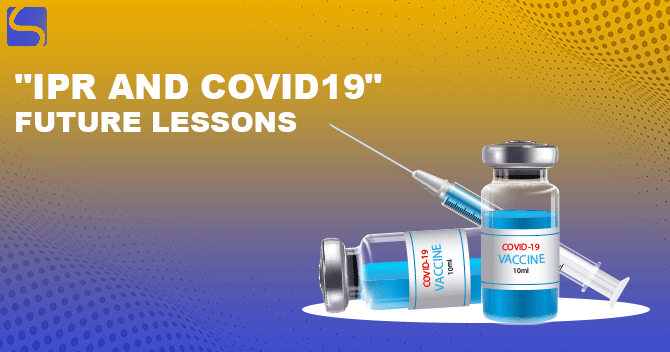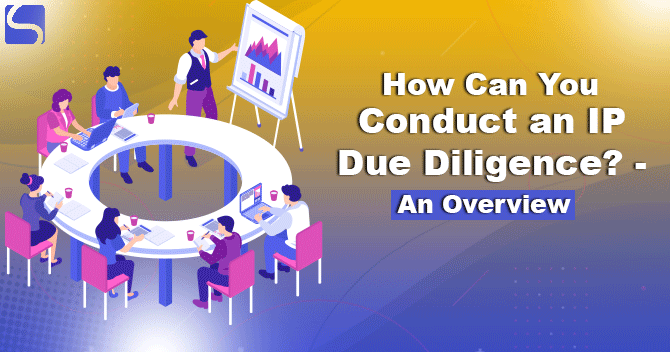IPR and Covid19: Lessons for Future

Siddharth Verma | Updated: Nov 20, 2021 | Category: IPR
We all have seen the massive outbreak of Covid19 in India, about millions of people died and got infected due to Covid19 in both second and first waves. Covid19 bought the whole world to its knees. The pessimistic assessment of the global healthcare system is primarily due to insufficient and indiscriminate access to drugs, Covid19 testing kits, vaccines, and other services. It is worth noting that the fight for intellectual property waiver and access to medical technology has been raging for an extended period, and the Coronavirus has just added fuel to the fire. Hence, in the article, we will discuss the waiver on IPR in respect of access to medical benefits for the welfare of the people at large. Scroll down to check the detailed information related to the IPR waiver and Covi19.
Table of Contents
IPR and Covid19
Intellectual property rights are intangible rights classified into – Trademark, Patent, design, and Copyright. Intellectual property rights offer the inventor a monopoly over their ideas for a set period, allowing them to restrict others from exploiting them and negotiate a fee in exchange for permission to use them. However, with the emergence of COVI19, the whole world awakened and decided to waive the patent from vaccines, medicines, software apps, and Covid19 test kits to safeguard the people from Covid infection. The development of vaccines and other medical technology is vital for public health preparedness; therefore, the response to a pandemic is closely related to IP. A patent owner holds sole ownership of his idea, and others are prohibited from undertaking research, manufacturing, or distributing patented products or procedures.
TRIPS Agreement IPR and Covid19
An agreement was signed in WTO on Trade-Related Intellectual Property Rights in 1994. It was the complete international level agreement on IPR to protect the IPR rights like Trademark and copyright. In the past, WTO[1] members have successfully agreed to waive specific articles of the TRIPS Agreement concerning pharmaceutical products and least-developed countries (LDCs) under the WTO Agreement, allowing members to waive an obligation in exceptional circumstances through consensus-based decision-making. The waiver would suspend countries’ IP commitments, allowing those with manufacturing capacity to manufacture Covid-19 vaccines and sell them to countries without manufacturing capabilities without fear of a WTO legal challenge. The waiver could be granted for a year at first. At the end of the year, it may be Revised and reviewed.
India, IPR and Covid19
India and South Africa have decided to put the landmark proposal to waive patents on COVID Vaccines before the WTO. Although, many low-income countries supported this proposal. The USA and the European Union were both against the proposal. However, on May 5, 2021, the United States modified its position and agreed to support the proposed waiver, a decision that elicited mixed emotions.
Why there is a need to waive patent on vaccines?
Patents offer vaccine developers the sole right to manufacture vaccines that they have invented. This also provides the complete freedom to demand whatever price they want to cover their R&D costs while also profiting. The objective of requesting a waiver is to prevent pioneering vaccine companies from enforcing their patents, allowing generic manufacturers to manufacture the vaccine without fear of being sued. As a result, vaccines would be manufactured in underdeveloped nations, boosting the vaccination campaign.
Wavier on vaccines- is the ultimate solution?
Those who have opposed the patent waiver on the COVID-19 vaccine claim that eliminating or suspending patent enforcement would discourage pharmaceutical companies from investing and innovating in vaccine research and development. It’s also been suggested that abandoning patents isn’t the best way to deal with vaccine shortages. The main barrier is a lack of infrastructure in the least developed countries to manufacture vaccines and other critical medical equipment. Furthermore, waiving patents is a pointless strategy when compulsory licensing is already allowed.
Health Emergencies and Government Aid
Due to the Pandemic in many countries, lockdown had been imposed for a long time to maintain the social distancing. However, especially in the second wave of Pandemic, many countries recorded high fatality rates and high infection rates of COVID19. As far as the IPR and Covid19 are concerned, the world has supported the proposal put by India and South Africa for waiving the patent on Covid19 vaccines. Many countries around the globe praised this proposal. IPR Identifies the efforts of critical stakeholders who take enormous risks to bring innovations to the forefront by allowing them to profit from the high costs of R & D with no guarantee of success. Conclusively, patent rights inhibit the spread of new inventions by limiting output, barring competitors, and boosting prices. This is critical to promote innovation and advanced technological development. However, in global emergencies, such as the current Pandemic, this cost-benefit approach to patents is useless. Our current goal is to speed up the immunization process rather than slow it down.
Conclusion
As we have discussed in detail about the prevalent issue of IPR and Covid19. The waiver on the vaccine is the need of the hour for the whole world. Although, issues and public health interests must take precedence over IPR. As a result, a fundamental overhaul of the IP framework is urgently needed to ensure that incentives are structured. Drug companies’ profit-seeking interests and global public health aims are well aligned. The COVAX trying to speed vaccine development and production may not be adequate. While nations with manufacturing capabilities can use TRIPS flexibilities such as compulsory licenses, this is not the case for countries without such qualifications, particularly LDCs in Africa and Asia.
Read our Article:What are the Types of Intellectual Property Rights?














